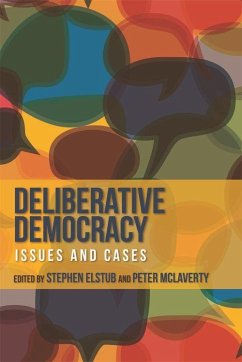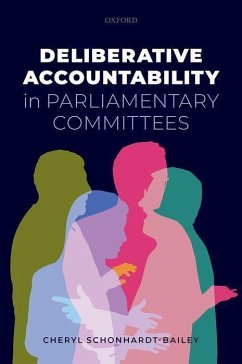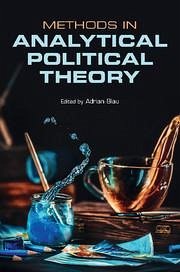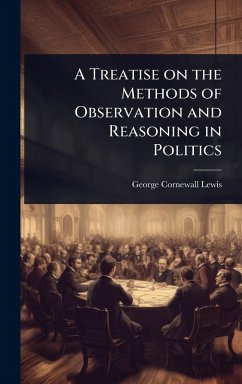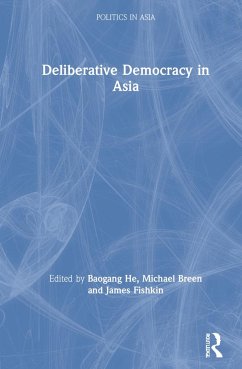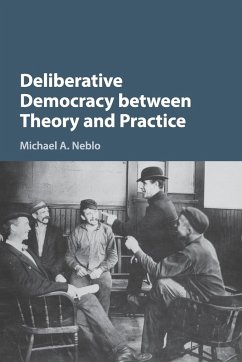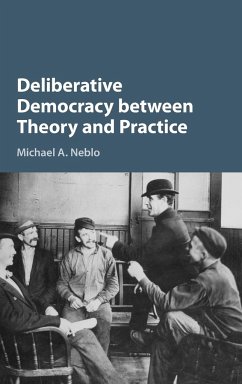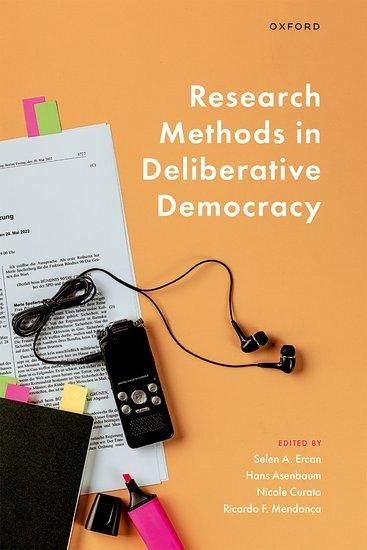
Gebundenes Buch
Research Methods in Deliberative Democracy
Versandkostenfrei!
Versandfertig in über 4 Wochen

PAYBACK Punkte
83 °P sammeln!




This book provides a unique collection of over 30 methods to study deliberative democracy. Written in an accessible style, it provides guidance for scholars and students on how to conduct rigorous and creative research on the public sphere, structured forums, and political institutions.
Selen A. Ercan is a Professor of Political Science and Director at the Centre for Deliberative Democracy and Global Governance at the University of Canberra. Her research interests include theory and practice of deliberative democracy, identity politics and multiculturalism, and alternative forms of political participation. Selen's work has been published in International Political Science Review, Political Studies, Policy and Politics, and Social Movement Studies, amongst others. She is the author of Mending Democracy: Democratic Repair in Disconnected Times (with Hendriks and Boswell; OUP, 2020); and the editor of Deliberative Systems in Theory and Practice (with Elstub and Mendonça; Routledge, 2019). Hans Asenbaum is a Postdoctoral Fellow at the Centre for Deliberative Democracy and Global Governance at the University of Canberra and holds a PhD from the University of Westminster. His research interests include identity and inclusion in new participatory spaces, digital politics, and feminist and gender theory. Hans' work has been published in the American Political Science Review, New Media & Society, Communication Theory, and Politics & Gender. He is Co-convener of the Participatory and Deliberative Democracy Specialist Group of the Political Studies Association in the UK. Nicole Curato is a Professor of Political Sociology at the Centre for Deliberative Democracy and Global Governance at the University of Canberra. She is the author of Democracy in a Time of Misery: From Spectacular Tragedy to Deliberative Action (OUP, 2019) and the editor of the Journal of Deliberative Democracy. Her work examines how democratic innovations can take root in the aftermath of tragedies, including disasters, conflict, and urban crime. Ricardo F. Mendonça is an Associate Professor at the Department of Political Science, Federal University of Minas Gerais in Brazil and a Research Fellow at the Brazilian National Institute for Digital Democracy. He is the coordinator of Margem - Research Group on Democracy and Justice. He holds a fellowship from CNPq (Brazilian National Council for Scientific and Technological Development) and a fellowship from Fapemig (Fundação de Amparo à Pesquisa do Estado de Minas Gerais). His research focuses on the theory and practice of democracy, political communication, and contentious politics. His publications include Deliberative Systems in Theory and Practice (with Elstub and Ercan; Routledge, 2019), Introduction to Democratic Theory (with Cunha; UFMG, 2018), Online Deliberation in Brazil (with Sampaio and Barros; UDUFBA, 2016).
Produktdetails
- Verlag: Oxford University Press
- Seitenzahl: 526
- Erscheinungstermin: 25. Januar 2023
- Englisch
- Abmessung: 224mm x 160mm x 56mm
- Gewicht: 953g
- ISBN-13: 9780192848925
- ISBN-10: 0192848925
- Artikelnr.: 66226317
Herstellerkennzeichnung
Libri GmbH
Europaallee 1
36244 Bad Hersfeld
gpsr@libri.de
Für dieses Produkt wurde noch keine Bewertung abgegeben. Wir würden uns sehr freuen, wenn du die erste Bewertung schreibst!
Eine Bewertung schreiben
Eine Bewertung schreiben
Andere Kunden interessierten sich für


